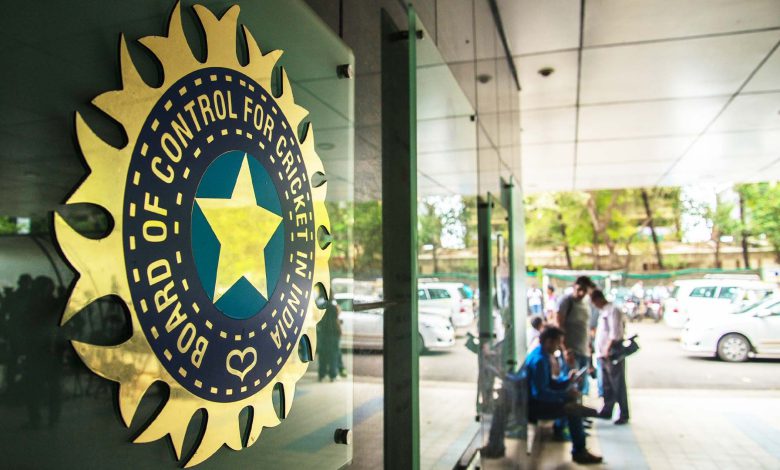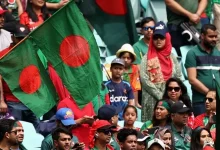BCCI Now Under RTI, Must Apply for Recognition and Seek NOC to Use ‘India’ Name

New Delhi: The long-awaited National Sports Governance Bill 2025 was finally introduced in the Lok Sabha by the Central Government on Wednesday. Once passed, it will become law and the Board of Control for Cricket in India (BCCI) will officially come under the Right to Information (RTI) Act, 2005. Additionally, the world’s richest cricket board will now be required to apply for official recognition.
This proposed law applies not just to the BCCI but to all sports federations in India. As cricket has been included as an Olympic sport (for the first time since 1900, now returning in the 2028 Olympic Games), the BCCI will now be required to register under the National Sports Board (NSB).
These changes are expected to lead to repeated discussions between the BCCI and the Sports Ministry. The cricket board has, for years, opposed any move to bring it under government laws or regulatory frameworks, citing its independence from public funding. But the new bill, with its extensive provisions, will likely become a topic of major debate.
According to the bill, any sports body, including the BCCI, that wishes to use terms like ‘India’, ‘Indian’, ‘National’, or any other national symbol, must obtain a No Objection Certificate (NOC) from the Central Government.
Strict Rule with Pakistan in Mind
The Central Government will have the power to impose reasonable restrictions on Indian participation in international tournaments under special circumstances in the interest of national security. In other words, the Narendra Modi government seems to have introduced this strict provision specifically keeping Pakistan in mind.
The main issue usually arises when Pakistan is participating in a tournament, and whether India should participate in that same event becomes a matter of debate. The Indian government has consistently followed a policy since 2008—India will not participate in any bilateral sports events with Pakistan. This is in response to the 2008 Mumbai terror attacks, in which more than 150 people were killed. Since then, Pakistani players have not been allowed to participate in the IPL either.
Government Empowered to Grant or Suspend Recognition
The bill gives the government powers to amend regulations at its discretion. With the aim of overhauling the governance of Indian sports, this significant bill was introduced in Parliament.
Only those National Sports Federations (NSFs) that are recognized by the National Sports Board (NSB) will be eligible to receive government grants or financial support. The NSB will have full authority to grant or suspend recognition to these federations.
The NSB will be led by a Chairperson and include members appointed by the Central Government. Other members will include:
The Director General of the Sports Authority of India (SAI)
Two experienced sports administrators who have previously served as president, secretary, or treasurer of any national sports body
One distinguished sportsperson who has won Dronacharya, Khel Ratna, or Arjuna Award
Any sports body that fails to conduct elections of its executive committee in time or is found to have irregularities in the election process may have its recognition withdrawn by the NSB. These bodies will also be required to publish their audited annual accounts.
Maximum Three Terms Allowed for Office Bearers
Under the bill, the positions of President, Secretary, and Treasurer of any sports federation can be held for a maximum of three terms, i.e., up to 12 years. The retirement age for these positions is 70 years, but if the relevant international body (like ICC for cricket or the Olympic Committee for other sports) permits an extension, the retirement age can be increased up to 75 years.
Mandatory Inclusion of Two Sportspersons and Four Women in Committees
From now on, any executive committee of a national sports federation must consist of no more than 15 members, to reduce financial burden. It must also mandatorily include at least two sportspersons with outstanding achievements and four women members.
This clause aims to ensure gender equality and athlete representation in decision-making processes.
National Sports Tribunal to Be Set Up
According to the Ministry of Sports, over 350 cases related to sports bodies are pending in various courts—ranging from selection disputes to elections. These prolonged legal matters have hampered both athlete and federation progress.
To address this, the bill proposes the creation of a National Sports Tribunal, which will include:
A Chairperson
Two other members
The Chairperson will be a retired Supreme Court judge or Chief Justice of a High Court, appointed by the Central Government. Any verdict given by this tribunal can be directly challenged in the Supreme Court, bypassing lower courts. This is aimed at ensuring speedy resolution of disputes.




